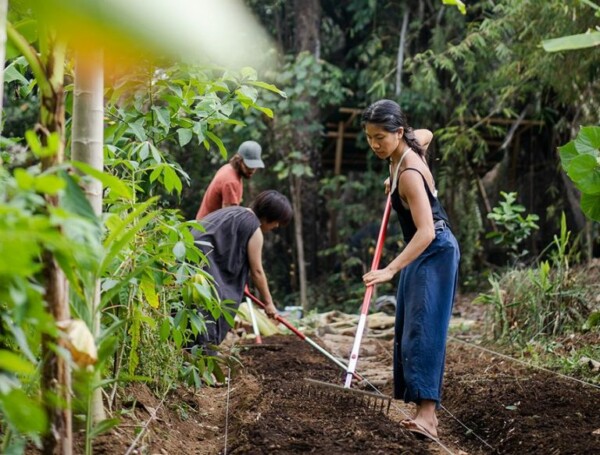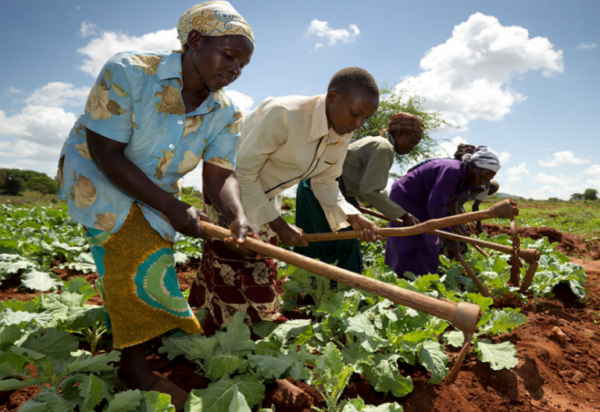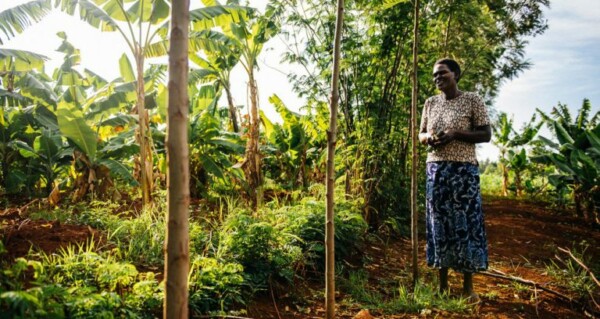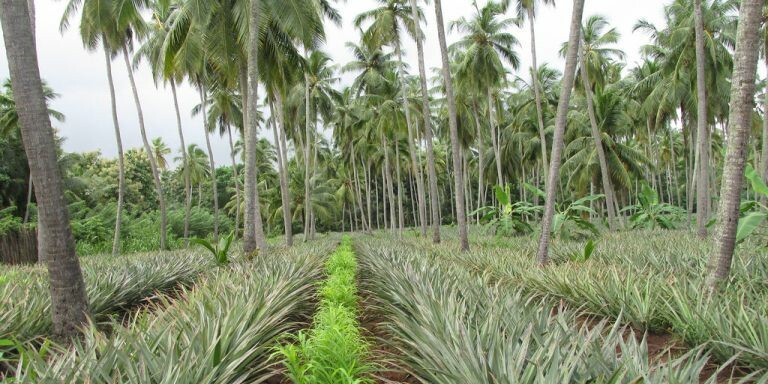Climate change is already transforming humanity’s relationship with nature, and nowhere is this shift more apparent than in the field of agriculture. Farmers worldwide are contending with rising temperatures, proliferating pests, and increasing droughts and floods that require new approaches to crops that have been grown for generations.
It’s a dynamic that leaves farmers exposed to financial ruin and diminishing yields, a prospect that threatens global food security at a time when the global population and its demand for calories continues to grow.

The COVID-19 pandemic has further impacted farmers, often cutting them off from laborers, markets, and government assistance. “Building back better” from the pandemic requires bold climate action that prioritizes smallholder farmers who are struggling to overcome structural and environmental forces outside of their control. That’s why the BKMC is entering a two-year partnership with Global Citizen — to advocate for climate-resilient agriculture by championing smallholder farmers especially in Africa and calling on world leaders to strengthen global food security and increase development aid to agricultural adaptation.
“2021 is the year we recover back better and call for increased political commitments,” said Ban Ki-moon, founder of the organization and 8th secretary-general of the United Nations.
“Partnering with Global Citizen on adaptation, the Ban Ki-moon Centre will join the collective effort to address climate change, focusing on building the climate resilience of smallholder farmers around the world.”
The partnership will involve behind-the-scenes advocacy and public awareness efforts that work hand-in-hand. By identifying governments that have shown broad sympathy for the cause of climate adaptation, the partnership will seek to increase development aid for agricultural adaptation in low-income countries.
In support of these outreach efforts, Global Citizen and the BKMC will also seek to improve understanding of the challenges facing smallholder farmers, the complex dynamics of climate change, and how demand-driven research, such as those championed by CGIAR, accelerates climate adaptation on the ground.
In particular, the Program will bring forward the stories of smallholder farmers and how they’re confronting the climate crisis, incorporating agricultural adaptation tools and techniques, and building a better future.

While countries have shifted toward a form of industrial agriculture in recent decades that features massive plots of land and heavy use of chemicals, there are still roughly 570 million smallholder farms worldwide that manage land less than two acres in size. These farms support communities through food production, jobs, and the maintenance of traditional practices. But climate change primarily threatens smallholder farmers who do not always have the resources to adapt to emerging disruptions. Farmers often have to sell or leave their land when faced with rising temperatures, droughts, and other environmental changes. The absorption of small farms into industrial farms, meanwhile, often further contributes to the problem of greenhouse gas emissions. Today you can start by taking our joint short quiz powered by Global Citizen to understand why the situation facing farmers is so urgent.
The partnership will highlight the lived experiences of female farmers on the front lines of food production; break down how adequately funded research can transform agriculture; explore how young people are reshaping agriculture and unlocking new opportunities; explain how agricultural adaptation practices can actually mitigate climate change, and look at how farming communities can improve rural development more broadly. Through written content, video, and social media, the partners will put a light on the people who are crucial to the future survival of humanity: farmers.

Whether or not countries can navigate the disruptions of the worsening climate crisis depends in part on how well smallholder farmers can adapt. Farmers require stable weather conditions and steady supplies of water, both of which are becoming increasingly precarious as temperatures rise. Looked at another way, focusing on the plight of farmers can foster society-wide climate resilience. If the people who tilled the land were prioritized in global decision-making processes, then fossil fuels would be phased out more rapidly and inequality eradicated sooner. After all, fewer greenhouse emissions mean less climate change and more favorable conditions for growing food.

